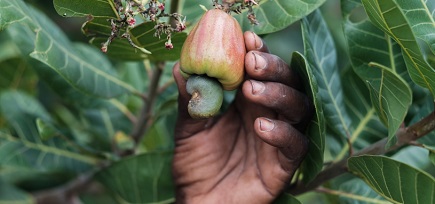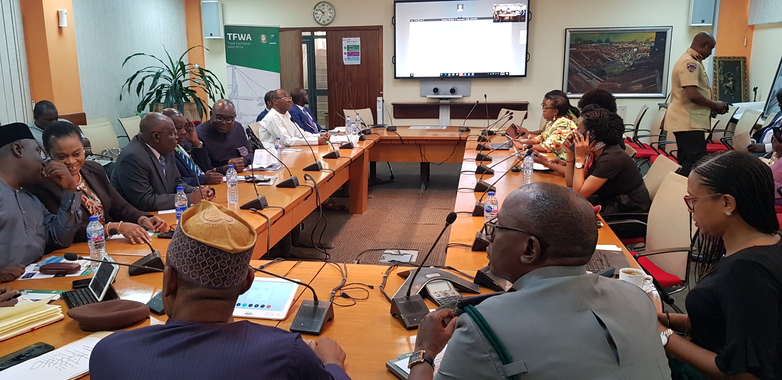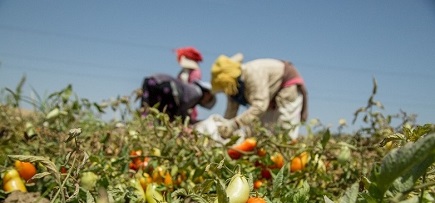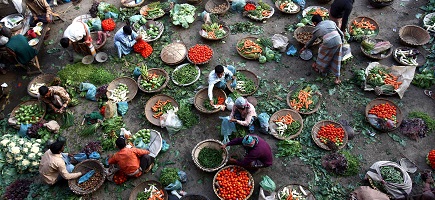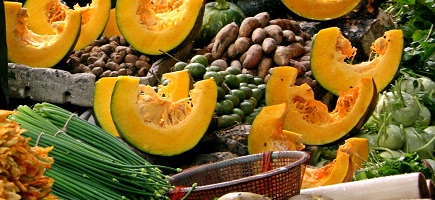Promoting agricultural trade in West Africa
Strengthening the ECOWAS Commission for the Promotion of Regional Agricultural Trade
-
Commissioning Party
German Federal Ministry for Economic Cooperation and Development (BMZ)
-
Country
Regional (Nigeria, Côte d’Ivoire, Niger, Benin, Ghana, Burkina Faso, Togo)
-
Lead executing agency
More
-
Overall term
2022 to 2026
-
Products and expertise
Rural Development and Agriculture
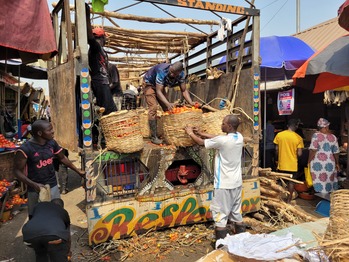
Context
Around 23 million people in the region of the Economic Community of West African States (ECOWAS) suffer from malnutrition. High population growth, climate change and rapid urbanisation all contribute to a situation where agricultural production is unable to keep pace with the growing demand for food. As a result, food shortages and the share of imports are rising. The covid pandemic and the war in Ukraine have highlighted the risks of being dependent on the world market.
Closer regional links and more trade within the ECOWAS region could contribute to solving this problem and increase agricultural productivity at the same time. Currently, however, agricultural trade within West Africa is of minor importance, with only 12 per cent of agricultural exports going to other ECOWAS states.
Besides inadequate infrastructure, the low trade volume between neighbouring countries is mainly caused by obstacles at border crossings. In practice, the ECOWAS region has no harmonised trade policy. High customs duties are often levied and varying legislation applies. Added to this are long waiting times and corruption at border crossings, which put women in particular at a disadvantage.
Due to these obstacles, a considerable portion of the region's cross-border agricultural trade operates in a gray area, posing difficulties in capturing it within statistical data and addressing it through effective policies
Objective
Conditions for cross-border agricultural trade in the ECOWAS region are improved.
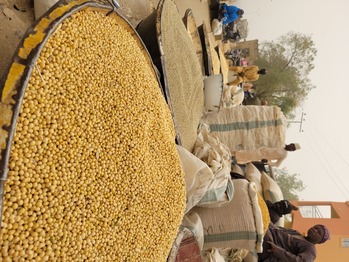
Approach
The project operates in the following areas:
- It provides evidence-based advice to the ECOWAS Commission and Member States and incorporates the private sector in this process, in order to harmonise regional trade policy.
- The project develops specific measures with neighbouring countries to facilitate cross-border trade, for example via trade information desks and accelerated procedures for perishable products.
- It supports traders through workshops, financial assistance and the provision of market information.
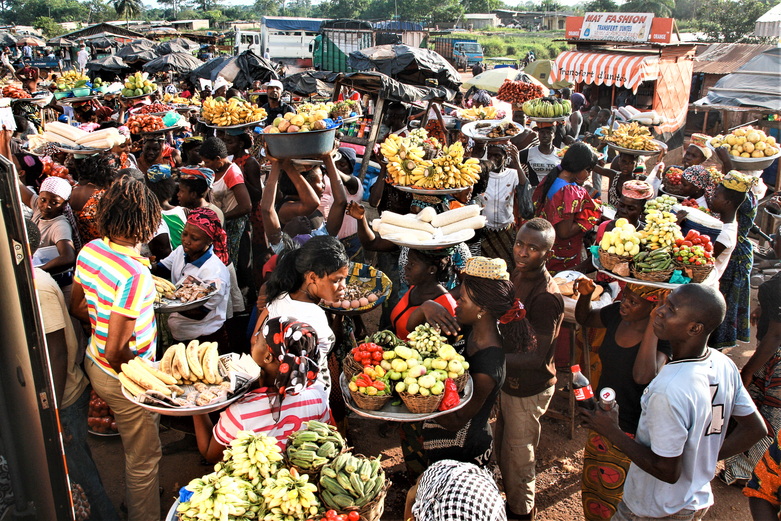
Last update: May 2023






